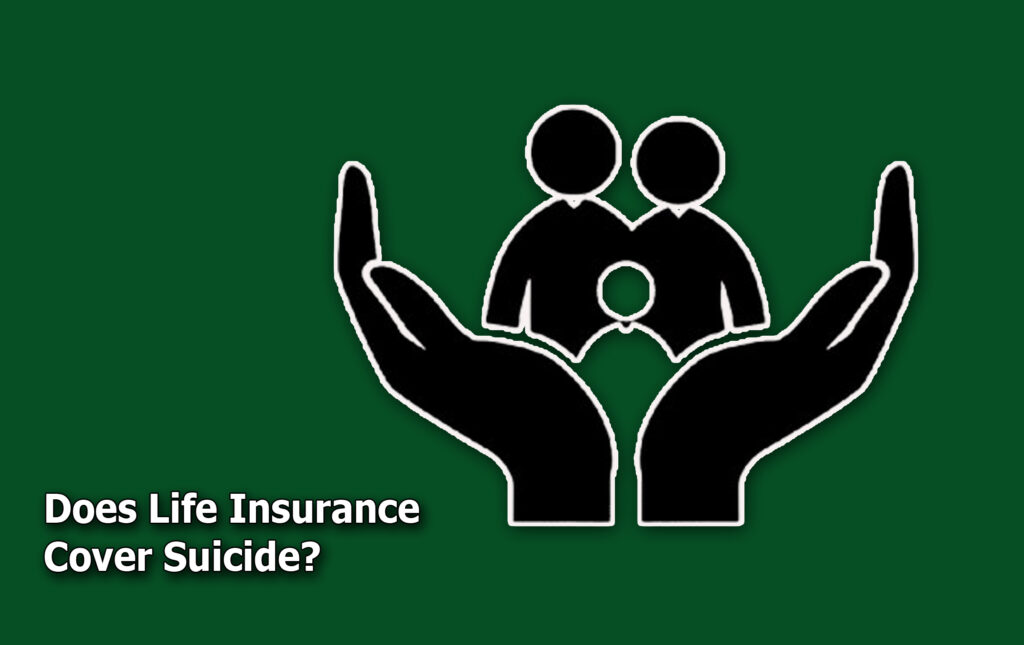Does life insurance cover suicide? Many people purchase life insurance for peace of mind, knowing that their family will be financially secure when they are gone.

However, many factors can influence whether a life insurance policy will pay out a death benefit. One of the most controversial aspects of life insurance is whether or not it covers suicide.
This question is often raised, especially in situations where someone close to you passes away under such tragic circumstances.
To understand whether life insurance covers suicide, it’s important to first explore the terms and conditions of most life insurance policies.
While life insurance is designed to provide benefits in the event of these deaths, insurers have specific rules regarding the payment of benefits in the case of suicide.
Types Of Life Insurance Policies And Suicide Clauses
Life insurance policies come in various forms, with each one offering different levels of coverage and payout options. Furthermore, these insurance policies generally fall into two broad categories: term life insurance and permanent life insurance.
Each type has its own rules and provisions regarding suicide clauses.
Term Life Insurance
Term life insurance is a policy that offers coverage for a set period, usually ranging from 10 to 30 years. If the insured person passes away during the term, their beneficiaries will receive a death benefit.
However, most term life insurance policies include a suicide clause that specifies the payout rules in case of suicide. So, if the policyholder dies by suicide within the first two years of the policy, the insurer may not pay out the death benefit.
This period is known as the “suicide exclusion period.”
Permanent Life Insurance
Permanent life insurance, which includes whole life and universal life insurance, offers coverage for the entire lifetime of the insured person, as long as premiums are paid. Like term life policies, these policies often have a suicide clause.
However, the exclusion period for suicide do vary depending on the insurer and the jurisdiction. In some cases, permanent life insurance policies may have a longer exclusion period than term policies.
It’s essential to read the specific terms and conditions to determine the coverage for suicide.
The Suicide Exclusion Period
One of the most important factors to consider when determining if life insurance covers suicide is the suicide exclusion period. This is a specific timeframe during which insurers will not pay out the death benefit if the insured person dies by suicide.
What Is This Suicide Exclusion Period All About?
The suicide exclusion period lasts two years, although it can vary by insurance company and jurisdiction. During this period, if the policyholder dies by suicide, the insurance company may refuse to pay out the death benefit to the beneficiaries.
The reason for this exclusion is that some insurance companies consider suicide to be a preventable cause of death, and they aim to protect themselves from individuals purchasing life insurance with the intent to end their life shortly thereafter.
After The Exclusion Period
Once the suicide exclusion period has passed, most life insurance policies will still cover suicide. However, this can still depend on the specific terms of the policy. Insurance companies may not deny the claim solely because of suicide if it happens after the exclusion period has ended.
However, insurers still have the right to investigate the circumstances surrounding the death to ensure that it was indeed a suicide and not caused by other factors, such as an accident or self-harm.
Factors That Influence Whether Life Insurance Will Cover Suicide
Several factors influence whether life insurance covers suicide. Some of those considerable factors include:
Mental Health History
Insurance companies often review the mental health history of the policyholder when determining whether a suicide claim will be paid out.
If the insured person had a history of mental health issues, such as depression or suicidal tendencies, insurers may be more likely to investigate the cause of death thoroughly.
Premium Payment Status
Another critical factor that affects whether life insurance will cover suicide is whether the premiums have been paid up to date.
If the policyholder has missed premium payments, the policy may have lapsed, and the insurer could deny any claims, including those related to suicide.
Therefore, it is important to keep your premiums paid and the policy in force to ensure that the beneficiaries will receive a payout.
Jurisdiction And Local Laws
In some jurisdictions, local laws may dictate how life insurance policies handle suicide. For example, life insurance companies in some countries may be required to honor suicide claims regardless of the exclusion period.
On the other hand, other countries may have stricter rules that limit or exclude the payment of death benefits due to suicide. It’s important to check the local laws in your area to understand how they might affect a life insurance claim.
It’s essential to review the terms and conditions of your specific life insurance policy to understand the coverage in the case of suicide. Always consult with an insurance agent or professional to clarify any concerns about your coverage
Frequently Asked Questions
Will Life Insurance Cover Suicide After Two Years?
Yes, this happens in most cases. The life insurance will cover suicide after the two-year exclusion period. However, it’s essential to read the specific terms of your policy to confirm the details.
Can Life Insurance Companies Deny A Suicide Claim After The Exclusion Period?
Although the exclusion period may have passed, insurers still have the right to investigate the circumstances surrounding the death. If there are any doubts about whether the death was truly a suicide, they may refuse to pay out the claim.
How Can I Ensure That My Life Insurance Policy Covers Suicide?
To ensure that your life insurance policy covers suicide, read the terms and conditions thoroughly before purchasing. If you’re not sure of everything, ask the insurer to clarify the details regarding suicide coverage and the exclusion period.



